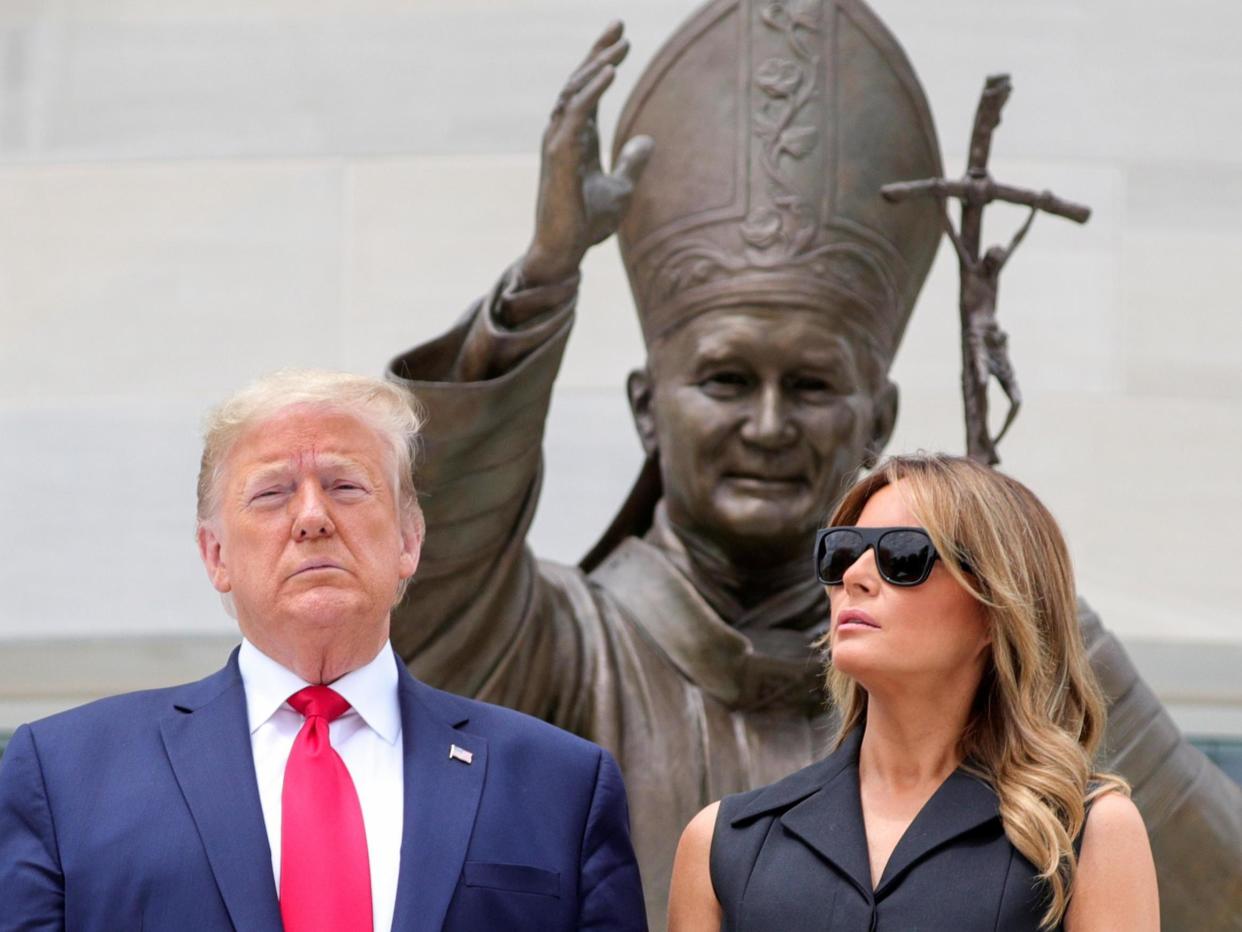Trump's brandishing of the Bible plays into a cultural legacy of racism and colonialism

On Monday, after vowing violent state action against protestors across the US, Donald Trump took time out for a photo opportunity. Did he talk to people of colour, heartbroken, enraged and exhausted by police brutality and the killing of George Floyd by officers of the state? Did he listen to the black mothers terrified that the next time they see their son leave the house will be the last time?
No.
Police launched smoke grenades and shot rubber bullets at protestors to pave the way for Trump’s publicity stunt outside the St John’s Episcopal church.
The president posed in front of the church, brandishing a Bible – invoking its legacy as the sacred text of slave owners and colonisers.
Biblical scholars, even working from different perspectives on faith, can agree that such use of sacred text is reprehensible.
Despite Trump’s outspoken views on biblical literacy, it’s apparent that he hasn’t read much, if any, of his “favourite book”.
When asked in an interview with Bloomberg about his favourite biblical passages, he responded “The Bible means a lot to me, but I don’t want to get into specifics.”
Then again, the president doesn’t need to get into specifics. Not when he’s using the Christian sacred text as visual shorthand for the justification of white structural violence.
Some Christian leaders, including the Right Rev Mariann Budde, the Episcopal bishop of Washington, and James Martin, a Jesuit priest and consultant to the Vatican's communications department, have condemned Trump’s photo opp. On Twitter, Martin declared “the Bible is not a prop … religion is not a political tool”.
The sentiment is understandable but the statement is less convincing.
The Bible has been used as a prop to scaffold racism for centuries, from the Ku Klux Klan, to the Nazis, to apartheid. Whether we like it or not, some of the most abhorrent ideologies have been legitimised using Biblical texts. The weaponisation of the Christian sacred text against people of colour is so integral to our colonial history that the gasps of shock ringing out on social media seem disingenuous. For Trump’s purposes, the Bible signifies white Christian supremacy – and there’s an audience for it, no matter how many white people Tweet their dismay at the killing of George Floyd or use the Black Lives Matter hashtag.
The use of the sacred to support centralised power is as old as monarchy itself. For example, the black Christian biblical scholar Willie Jennings has recently explored the toxic interaction between the Bible and the colonial project in his ground-breaking work The Christian Imagination.
It is the shame of the Church that we have far too often been silent, complicit, or actively collaborated with such uses. This calls for public repentance.
It is hard to know what Trump was attempting by his stunt. In fact, if Trump knew much at all about the Bible he was waving, he might not be so keen to invoke its authority. It contains many examples of the sharp rebuke of abusive leadership and it has many strongly-worded criticisms of those who perpetrate social injustice of every type.
He has picked up a brand that will burn him.
The Bible is a public book, and everyone is entitled to interpret it for themselves. I suspect that biblical scholars interpret it quite differently. But neither of us would seek to shut down the other. Control of the interpretation of the sacred text is yet another way in which power has been wielded to great harm.
But the interpretation of a text as powerfully resonant in both cultural and religious terms as the Bible must be exercised with caution, with integrity, and with an enormous sense of responsibility. For readers both with and without faith, responsible interpretation requires a commitment to interpret it for the benefit of human welfare. We all must resist interpretations that lead to, promote, or endorse violence and injustice.
Katie Edwards is a senior lecturer in biblical studies at the University of Sheffield and Helen Paynter is a Baptist minister and director of the Centre for the Study of Bible and Violence at Bristol Baptist College
Read more
Trump threatens George Floyd protesters in DC with ‘vicious dogs’
Trump says those protesting George Floyd death are 'radical left'
Trump puts army on alert to deploy military police to Minneapolis

 Yahoo News
Yahoo News 
